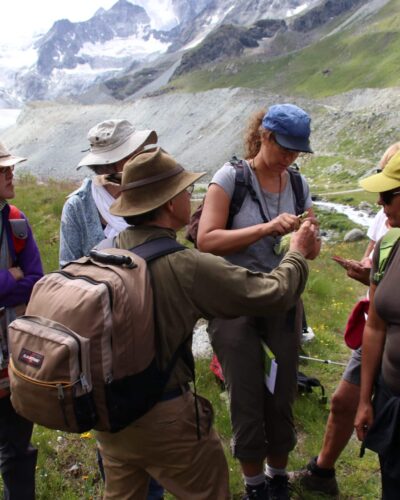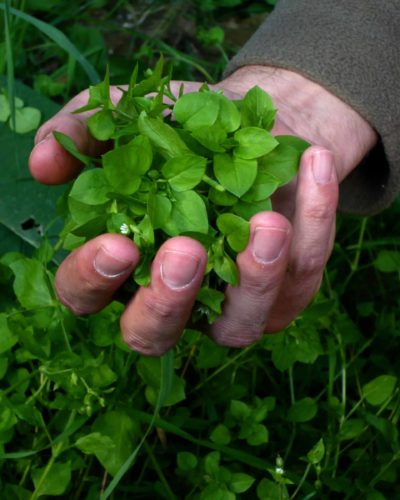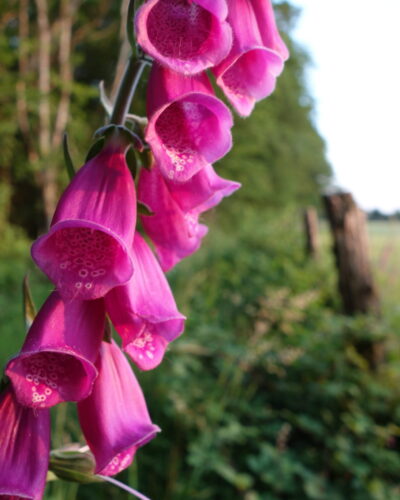Through this website, I am pleased to share the fruit of more than three-quarters of a century spent exploring and studying wild plants. I offer you insights into their many uses and the deep bond that has united humans and plants since the beginning of time. This site is a doorway into a body of knowledge patiently gathered over decades – through encounters, travels, hands-on experiences and years of research. I share it with you through field workshops, online courses, lectures, books, and practical guidance.
As you explore these pages, you’ll find details on upcoming events, have the opportunity to join my workshops or our online course, and order my books – including many that are no longer available in bookstores. You’ll also be able to follow my ongoing series “Plants and People”, or travel through my stories and photographs. All of this opens the door to a wealth of knowledge on ethnobotany and the vital role plants play in our lives. My goal is simple: to help you reconnect with nature and gain a deeper understanding of how essential plants are to our food, our health, and our relationship with the world.
Where It all began
My love for plants goes back as far as I can remember. As a child, I would wander through forests and meadows with my mother, a passionate mountaineer, picking dandelions and daffodils in the spring, blueberries and raspberries in the summer, sloes in the fall and rosehips in winter. My parents and I were also devoted mushroom hunters, unstoppable in our quest! Those first, vivid experiences of foraging left a lasting impression on me. They’ve shaped my way of life and the course of my work ever since.
At the age of twenty, I turned away from society’s conventional paths and chose a life of freedom and simplicity, wandering deep into the forests of the American West. For ten years, I lived close to nature, guided by the awareness that my true needs were few: air and water cost nothing, and wild plants offered all I needed to survive. Season after season, through daily encounters with the land, I forged a deep and personal bond with the plant world.
As I emerged from the forest, I naturally began sharing what I had learned with those I met along the way. Interest in wild plants was strong, and in 1975 I held my first workshops in North America, expanding to Europe by 1981. The enthusiasm never waned: to this day, thousands of adults and children have joined me in discovering the edible treasures nature offers.
Our approach is rooted in the senses: we observe, touch, smell, listen and, when safe, taste. After discussing each plant’s traditional uses, healing properties, and occasional dangers, we gather what we need to cook up together surprising and delicious meals straight from the wild.
My work with wild plants soon drew the attention of chefs seeking to expand their culinary horizons. From the 1980s on, I began collaborating with renowned chefs –many of them boasting one to three Michelin stars – who were keen to bring nature’s forgotten flavors back to the table. Together, we explored wild ingredients, from roots and flowers to shoots and berries, and wove them into sophisticated and unexpected dishes. These collaborations helped spark a true culinary revolution, placing wild plants at the heart of a creative, sustainable, and deeply flavorful cuisine.
Encouraged by Yves Coppens – the renowned paleoanthropologist who, along with Donald Johanson, discovered Lucy — I completed a PhD in paleoethnobotany at the French National Museum of Natural History in Paris in 1996. My research focused on the potential plant-based diet of our early human ancestors.
A few years later, the French Minister of Agriculture awarded me the Order of Agricultural Merit in recognition of my work in bringing forgotten fruits and vegetables back into the spotlight.
While I found great joy in sharing my knowledge through workshops, I soon realized the limits of such fragmented transmission: the subject was simply too vast and vital. In response, I founded the Practical College of Ethnobotany in 2008, offering a comprehensive three-year program designed to explore in depth the profound relationship between humans and plants.
My ambition? To help bring the plant world back to the center of human life and, through this reconnection, contribute to a meaningful shift in our society. The College also aims to train a new generation of teachers who will carry forward this essential knowledge.
In 2023, with the support of my team, I decided to make this training more widely accessible by offering it online. This new format provides remarkable flexibility, enabling learners to gain extensive and in-depth knowledge while still engaging in essential hands-on fieldwork. I continue to lead practical workshops in person, often joined by some of my former students.
Since my earliest botanical explorations, I have diligently taken notes and recorded observations that have grown into more than 125 published books on plants, their uses, nature, and the vital role the green world plays in human life. Released by some thirty different publishers, these works reflect a lifetime of research and passion. Most are in French, one in English, with others in German, Spanish, Italian, Japanese, and more. Today, I am considering launching my own publishing house to share this knowledge with greater freedom.
If you are curious to learn more, sign up for a course, or simply be inspired by the boundless world of plants – welcome to couplan.com.
Workshops, Trainings, and Books
For many years, we have developed effective ways to help people connect with wild plants and integrate them into everyday life. Through a diverse range of workshops, training programs, and books, we guide you to deepen your knowledge of the natural world and discover its hidden treasures.
Our field workshops focus first on practical, sensory experiences. It’s all about engaging directly with plants – observing their forms, feeling their textures, inhaling their aromas and tasting their often surprising flavors. This immersive approach is the best way to truly understand and connect with them.
Beyond learning, these workshops offer a chance to recharge in nature’s embrace, forge meaningful bonds, and breathe deeply amidst often stunning landscapes.
We offer a whole range of workshops, each centered on a different facet of our relationship with plants. Wild gastronomy opens the door to the unexpected culinary treasures of spontaneous flora – teaching you how to recognize edible plants, gather them responsibly and turn them into dishes that are as simple as they are refined. Along the way, you’ll discover a surprising world of bold, subtle and unfamiliar flavors.
Soft Survival is about immersing yourself in the wild. Equipped with only the bare essentials, we explore natural landscapes and rely primarily on what nature provides for nourishment – rediscovering how to live in true symbiosis with our environment.
Our range of thematic workshops expands this approach, exploring medicinal plants and their traditional uses, crafting wild jams, the essentials of applied botany, and many other fascinating topics.
For those ready to delve deeper, our three-year training at the Practical College of Ethnobotany offers an immersive exploration of the plant world – covering not only botanical and practical knowledge but also plants’ history, symbolism, and significance within human cultures. The curriculum covers a broad range of topics: plant identification in the field, culinary and medicinal uses, nutritional properties, toxicity, the relationships between plants and human traditions, history of agriculture, food autonomy, invasive species, human body systems and their associated plants, and more. Combining online theoretical courses with hands-on fieldwork, this training offers a thorough and immersive journey into the fascinating world of ethnobotany.
Our College has been affirmed with the Qualiopi certification, a French national quality label that guarantees the high standards of our training programs and our commitment to educational excellence.
Ready to deepen your knowledge and connect more intimately with the plant world? Join us and embark on this transformative journey.
Join me on a year-long journey to discover the plants growing around you, no matter your experience level. Through regular practice – observing, harvesting, filling out plant profiles and sketching – you’ll sharpen your skills and deepen your connection with nature.
You’ll also receive ten detailed courses covering all essential aspects of ethnobotany: plant identification, edible and medicinal uses, wild cooking, applied botany, and more. This practical, well-structured program will empower you to quickly gain confidence and navigate the fascinating world of plants with ease.
While not a substitute for our full three-year training, this course serves as a perfect introduction or a valuable complement.
For over thirty years, I’ve helped top chefs like Marc Veyrat and Jean-Georges Vongerichten rediscover the incredible flavors of wild plants. Now, together with Keiko Imamura, a master of traditional Japanese cuisine who brings her unique perspective, I bring this expertise directly to your restaurant.
We’ll explore local wild plants and design creative, unforgettable dishes that highlight their unique tastes. This hands-on training involves your entire team – from growers to front-of-house – ensuring a richer, more authentic experience for your guests.
I also support you in crafting communication tools to showcase your commitment to this exciting culinary journey to your customers and the media.
In addition to our courses and workshops, this site offers a rich selection of books reflecting decades of research and field exploration. You’ll find beginner-friendly guides, in-depth reference works, and even a comprehensive three-volume encyclopedia for the most passionate readers.
Topics include edible wild plants, their nutritional and medicinal benefits, toxic species, natural gardening, wilderness living, and much more – all grounded in hands-on experience.
Several of these titles, now out of print in bookstores, are available again here.
Plants, source of life
For thousands of years, humans relied on wild plants for their survival – to eat, to heal, to clothe themselves and to provide heat and shelter. These natural allies sustained our ancestors in every aspect of daily life.
Yet in the blink of an eye compared to the span of human history, this precious heritage has been set aside. Wild plants have been cast aside, often deemed unworthy of the “civilized” people we believe ourselves to be.
Fortunately, this trend is now beginning to reverse. Wild plants are slowly but surely reclaiming their place in the daily lives of many. City dwellers, in search of a closer connection to nature, are beginning to see these plants not as mere “famine foods” – a dismissive label once prevalent – but as valuable resources in their well-being and self-reliance.
Today, top chefs are embracing wild plants in their culinary creations – with striking success. These once-forgotten ingredients are now at the heart of vibrant, inventive cuisine.
The reasons behind this resurgence are many. Wild plants not only awaken the senses with their distinctive, unexpected flavors – they are also packed with nutritional power. Bursting with vitamins, minerals, trace elements, flavonoids and other antioxidants, they offer a rich and natural remedy for bodies starved of essential micronutrients. In a world obsessed with supplements and “superfoods,” wild plants quietly prove to be among the most potent, nourishing – and delicious – sources of vitality. And perhaps the best part? They’re entirely free.
Gathering wild plants doesn’t just nourish the body – it nurtures the whole being. Walking through nature, breathing deeply, feeling the sun on your skin and the wind in your hair – all of this grounds you, reconnecting you to what truly matters, bringing a deep sense of mental and emotional harmony. Far from the noise and pressure of urban life, foraging calms the mind, strengthens the body, and revives the spirit.
Through foraging, nature becomes more than an abstract concept or something we’re told to protect – it becomes personal, tangible, alive. After all, we can only protect what we respect, and we only respect what we truly know.
Reconnecting with wild plants means rediscovering an endless wealth right at our doorstep – a natural treasure as vital to our health as it is to our individual and collective well-being.
A word of caution
Not everything in nature is safe to eat: it is essential to remember that some wild plants are poisonous – and accurate identification is absolutely crucial! A single mistake can have serious consequences.
While the dangers of the wild are often exaggerated, it is always important to stay aware and vigilant when foraging.
Many native plants are now under threat. Respecting protected species is vital if we hope to safeguard biodiversity for future generations.
When it comes to wild plants, knowing exactly what you’re harvesting is non-negotiable. Books can be helpful, but no amount of reading can replace real-life, hands-on experience. The best way to learn is by going into the field with someone who truly knows – a skilled expert who can identify plants with confidence and share the deep, traditional knowledge that brings them to life.
Our team brings together experienced and passionate individuals, combining deep theoretical knowledge with extensive hands-on foraging practice. We provide a serious and thorough learning experience. Teaching botany and the uses of plants demands true expertise – and we are committed to passing on this knowledge with precision and responsibility.



